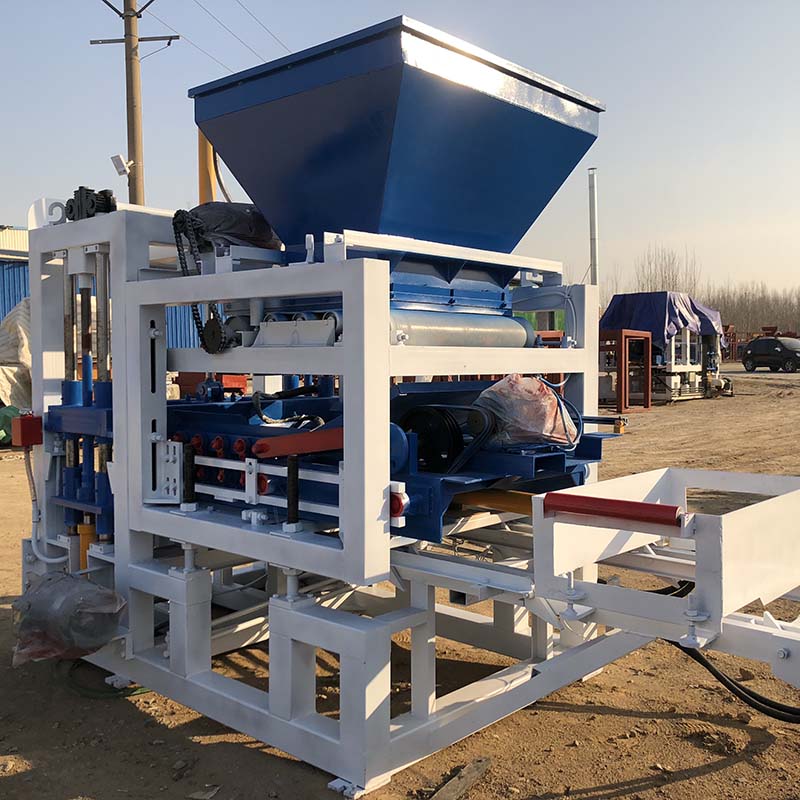
Image source:Aiwei block machine
The construction industry is constantly evolving, demanding higher standards of quality, efficiency, and sustainability. Hydraulic concrete block machines have emerged as essential tools in meeting these demands. These machines not only enhance productivity but also provide an exceptional level of quality assurance and consistency in block production. In this article, we will explore how hydraulic concrete block machines achieve this and their crucial role in the construction landscape.
The Need for Quality Assurance in Block Production
Quality is non-negotiable in the construction of durable, safe, and aesthetically pleasing structures. Poor-quality blocks can compromise the structural integrity of buildings, leading to safety hazards and costly repairs. To ensure quality, consistency, and reliability in block production, the construction industry relies on hydraulic concrete block machines.
How Hydraulic Concrete Block Machines Work
Before delving into quality assurance, it’s important to understand how these machines function. Hydraulic concrete block machines use hydraulic pressure to compress and form concrete or cement mixtures into blocks of various shapes and sizes. The process involves several key components:
- Batching and Mixing: Raw materials, such as cement, sand, and aggregate, are precisely measured and mixed to create a homogenous concrete mixture.
- Filling the Molds: The mixture is then fed into molds, which determine the shape and dimensions of the blocks.
- Compaction: Hydraulic pressure is applied to compact the mixture within the molds, ensuring proper density and strength.
- Curing: The newly formed blocks are typically cured under controlled conditions to achieve optimal strength and durability.
Quality Assurance Measures in Hydraulic Concrete Block Machines
- Precise Material Proportioning: Hydraulic concrete block machines are equipped with advanced systems for precise material proportioning. This ensures that the concrete mixture meets the required quality standards, with consistent proportions of cement, sand, and aggregate.
- Uniform Compaction: Hydraulic systems provide consistent and uniform compaction of the concrete mixture within the molds. This uniformity is critical for achieving blocks with consistent strength and density.
- Vibration Control: Many hydraulic block machines employ vibration technology to further enhance compaction. Vibration helps remove air voids from the mixture, resulting in denser and more durable blocks.
- Temperature and Moisture Control: Some hydraulic block machines offer precise control over curing conditions. Maintaining the correct temperature and moisture levels during curing is essential for achieving the desired block strength.
Consistency in Block Production
Consistency is a hallmark of quality in block production, and hydraulic concrete block machines excel in this regard. Here’s how these machines ensure consistency:
1. Mold Design and Precision
Hydraulic block machines use molds that are designed with precision. These molds are manufactured to exacting standards to ensure uniformity in block size, shape, and texture. This design precision eliminates variations that can occur in manual block production.
2. Controlled Compression
Hydraulic pressure is applied with a high degree of control. This control allows for consistent compression across all blocks produced, resulting in uniform strength and durability.
3. Batch-to-Batch Consistency
Hydraulic machines offer batch-to-batch consistency. The batching and mixing processes are automated and closely monitored, ensuring that each batch of concrete mixture is consistent with the previous one.
4. Rapid Production Rates
Hydraulic block machines can produce blocks at high speeds. This rapid production rate doesn’t compromise quality; in fact, it often enhances it by minimizing the time for variations to occur.
Benefits of Hydraulic Concrete Block Machines for Quality Assurance
- Structural Integrity: Blocks produced by hydraulic machines exhibit high structural integrity, ensuring the safety and longevity of constructed buildings.
- Aesthetics: Hydraulic machines can create blocks with consistent surface finishes and textures, enhancing the visual appeal of structures.
- Reduced Waste: The precision of hydraulic machines reduces material wastage, contributing to cost savings and environmental sustainability.
- Consistent Performance: Buildings constructed with blocks from hydraulic machines perform consistently over time, minimizing maintenance and repair costs.
- Compliance: Hydraulic block machines can meet or exceed industry and regulatory standards for block quality and consistency.
Conclusion
Hydraulic concrete block machines are instrumental in maintaining quality assurance and consistency in block production. These machines combine precision engineering with advanced technology to produce blocks that meet stringent quality standards. As the construction industry continues to prioritize quality, efficiency, and sustainability, hydraulic concrete block machines will remain indispensable tools, shaping the future of construction one block at a time.
